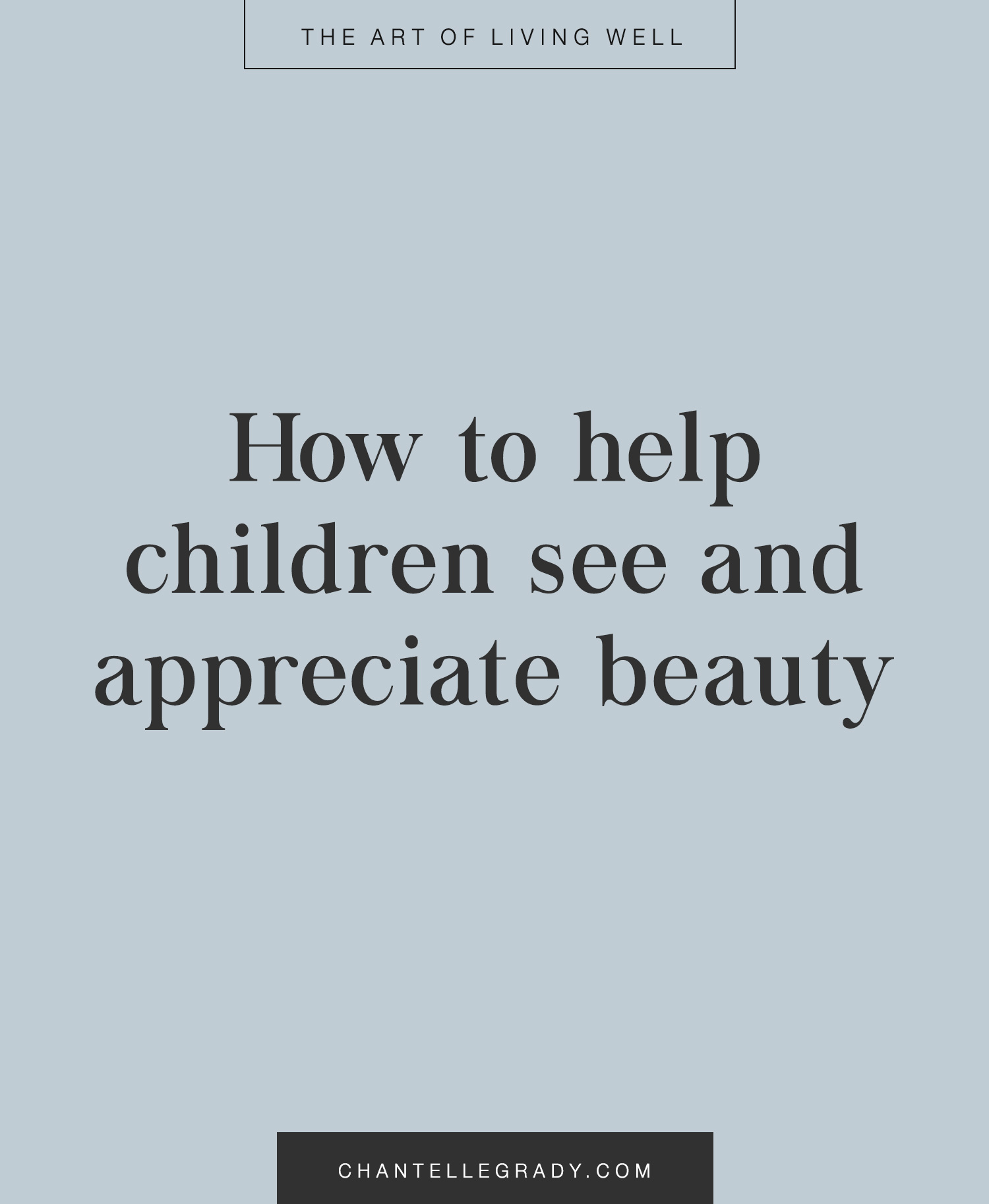How to teach children to appreciate beauty: my top 5 tips
One of the the things I try to do as a parent is teach my children to appreciate beauty and aesthetics. This comes rather naturally to children in the earlier years - noticing and being captivated by a star sparkling in the sky or a bird flying in the distance. But as we age and become more and more distracted we can lose this skill. It’s important that we keep encouraging children to notice the beauty in their everyday.
It can help us throughout life, and dealing with difficult times.
I know that if I’m having a terrible day then quite often pausing to notice the natural environment around me will help pull me out of it and lift my mood. Or if indoors at home, being in an orderly and stylish space inspires me, helps keep my mind clear and improves productivity.
Appreciating aesthetics also teaches children to respect their belongings and the home that we share. They treat their toys gently, and as we guide them they begin to place things where they belong without constant prompting. It also encourages independence.
These tips not only help children, but help us as adults too.
My top 5 tips for teaching children to appreciate beauty:
1. Share the beauty you see around you
Talk to your children about how the clouds look or how light filters through them. Talk about the smell of the rain and how green and lush the garden looks. When at the markets point out how rich the tomatoes are or how beautiful the flowers for sale are. When at home talk about how calm and organised their room is (when it’s organised!) and how relaxing it feels.
2. Talk about the beauty in what they create
When your child creates a block tower mention how you love the design of it and the thought that went into creating it. If they bring a drawing home from school talk about how beautiful the colours look together or how you like the story behind it. If they help with dinner mention that you love how delicate they are at garnishing it and that you can’t wait to enjoy it.
3. Teach (and show) them how to respect their home and belongings
First and foremost we as parents need to demonstrate a respect for our home. It takes children a little while to grasp this. But if we keep our home orderly (without being a museum) and demonstrate a care and respect for our things, then children pick up on that and (hopefully) carry that through to their adult years. They start to appreciate organisation and where things go. And treat their items with respect rather than thrashing them about like they aren’t worth anything. So make their bed and mention how comfortable it will be to climb into at night. Keep their play area tidy and talk about how beautiful and organised the space looks and how easy it is to find things.
4. Help them understand and notice kindness
I think it’s important for all of us to notice and appreciate kindness. Kindness is beautiful and it’s nice to see it in the world around us. If a friend of theirs does something caring then talk about how kind it was and how good it made your child feel. If your child consoles their sibling when upset then mention how happy and loved that would have made their sibling feel. If out in public and somebody helps another, then talk about it with your child. It teaches them about empathy. To notice and care about how others feel.
5. Talk about the beauty of an experience
Noticing how an everyday experience feels can attribute greatly to our happiness. I think this is so important to teach to our children. It’s a way of practising mindfulness without it being too forced. When we set the table make it special - throw a simple tablecloth across the table, light a candle and play some ambient music that the family loves. Talk about how beautiful and welcoming the table looks. If you have guests over for an evening celebration, talk afterwards to your children about how special and fun it was. How magical the lights looked as all the kids were playing. If it’s a cold night climb under the covers to read a book with your child and mention how cosy and comfy it feels.
Children are fairly intuitive and notice when we are being authentic. When you comment about beauty be sure it’s sincere and comes from the heart. And for that, we first need to appreciate and be mindful of beauty ourselves.
I hope that provides some help! It’s a wonderful thing to appreciate beauty, as I discussed in my last post. I’d love to hear how you share beauty with your child, or how you appreciate it in your own life.

